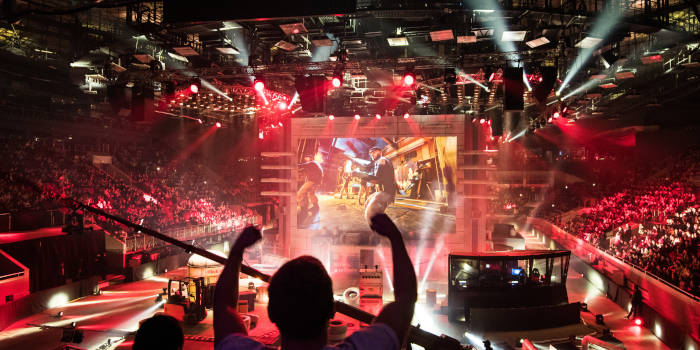Fixing Games in CS:GO Now Can Get You 10 Years in Prison

Six Counter-Strike players have been arrested in Melbourne for allegedly fixing CS:GO matches, a SSIU investigation has shown. If charged and convicted, the players could face 10 years in prison.
Esports Match-Fixing Could Get You 10 Years in Prison
You can get in trouble for cheating at a game, and the game need not be poker, soccer, or any type of athletic contest for that matter. In Australia, six individuals were arrested over fixing games in Valve’s Counter-Strike: Global Offensive (CS:GO) League. CS:GO is a famous First-Person Shooter (FPS) which has been one of the mainstays of competitive video gaming for decades now.
Victoria Police Sporting Integrity Intelligence Unit (SSIU) worked together with the Organized Crime Intelligence Unit to arrest individuals over several properties in Melbourne, all of whom were involved in a match-fixing ring. And believe it or not, fixing matches for esports is incredibly widespread.
The authorities were tipped by a sportsbook which had alerted them to the possibility of a grou pof people fixing CS:GO matches within the League to which the units responded. This is another example of how integrity in competitive video gaming is treated seriously.
We've updated ESL sanctions for matchfixing/cheating based on @esic_official recommendations!https://t.co/thUjh723vM pic.twitter.com/oXFIMeCRqr
— ESL (@ESL) July 24, 2017
Police inspectors launched their investigation as early as March 2019, carrying out the raids five months later. Based on the investigation, players were intentionally organizing “throws” as in helping the opponent win so as to reap better rewards on betting odds. Overall, 20 bets were placed.
Should police treat the matter seriously – and despite this not being a soccer or a rugby game, but esports – players could end up facing 10 years of jail time. This is a steep price to pay for fixing CS:GO matches.
Esports Integrity and Control Over Match-Fixing
As specified, each individual could be put behind bars for a period of up to 10 years, although the fact that this is a video game is very likely to mitigate these circumstances. Meanwhile, the SSIU and the Organized Crime Intelligence Unit said that they are working with a number of betting agencies, not least of all some that focus on esports.
Speaking about the first-of-its-kind case of esports match-fixing to merit official punishment, Assistant Commissioner Neil Paterson had this to say:
“Esports is really an emerging sporting industry and with that will come the demand for betting availability on the outcomes of tournaments and matches,” he said. “It’s important that police and other agencies within the law enforcement, gaming and betting industries continue to work together to target any suspicious activity.
These warrants also highlight that police will take any reports of suspicious or criminal activity within esports seriously, and we encourage anyone with information to come forward.”
Even though cheating at official esports contests has only been punished with a reprimand on the part of organizers and a ban, more measures are now being taken. For starters, the Esports Integrity Coalition (ESIC), a global watchdog that works for the improvement of the integrity across the entire industry, has been established – and they do take their job seriously.
ESIC Commissioner Ian Smith has spoken to GamblingNews sharing his thoughts on esports betting and how the organization focuses on teaching players and participants in esports that sooner or later – they will get caught.
It’s a fact of life, Mr. Smith makes it sound like, and given the recent attempts to paint around the lines or downright cheat, he’s not too far from the truth.
Mike made his mark on the industry at a young age as a consultant to companies that would grow to become regulators. Now he dedicates his weekdays to his new project a the lead editor of GamblingNews.com, aiming to educate the masses on the latest developments in the gambling circuit.



